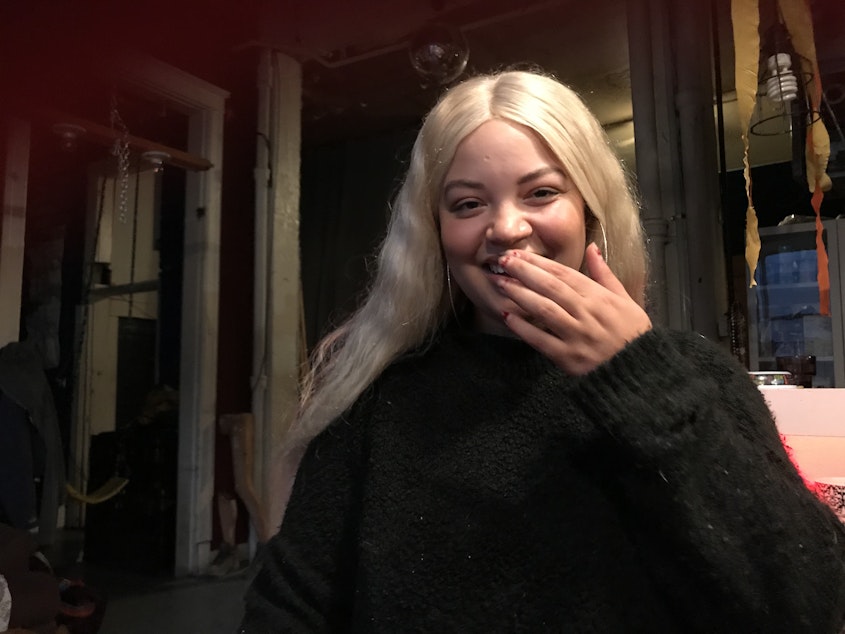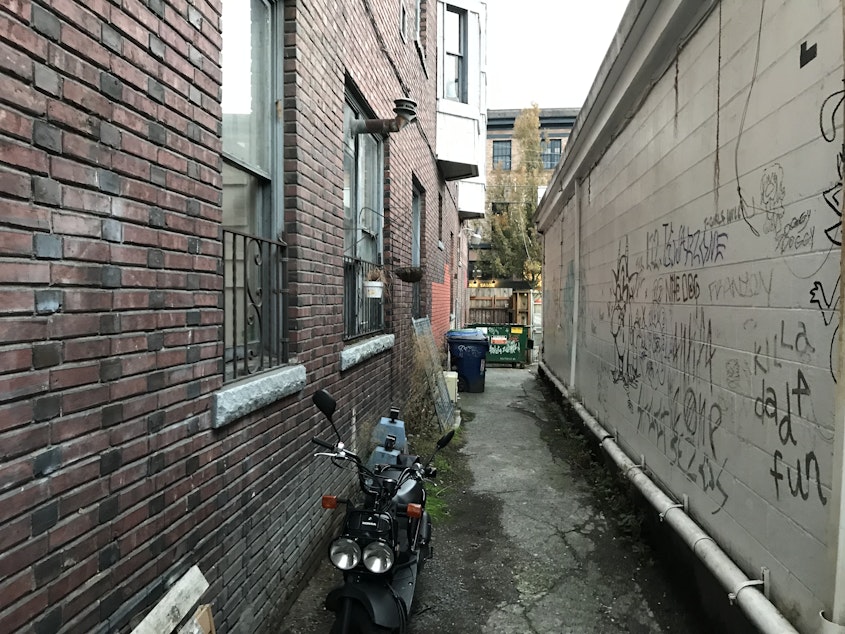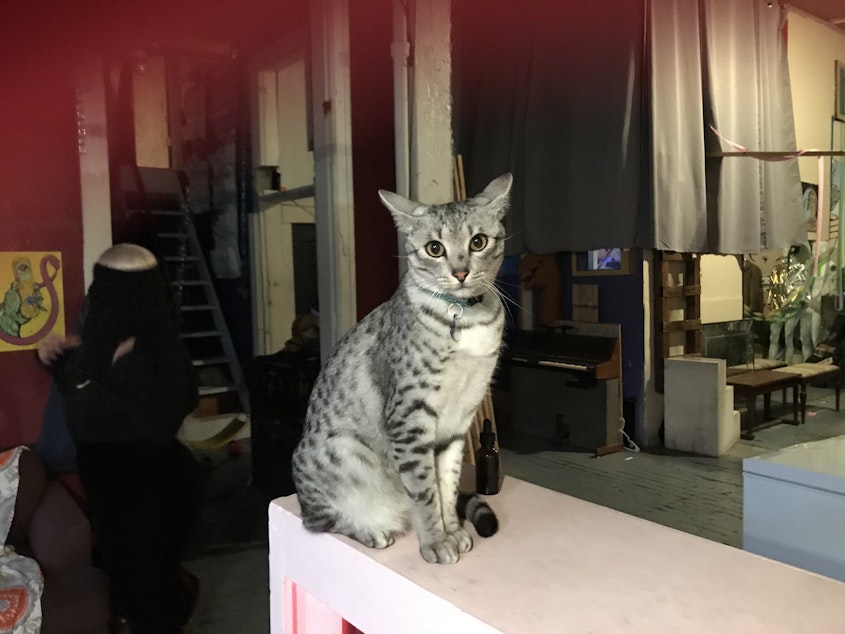Artists are being squeezed out of Seattle, how can we keep them?

Tracking down Archie’s Capitol Hill home is a little bit like locating platform 9 ¾ to find the Hogwarts Express.
The shabby space is behind a locked gate and down a brick alley. It’s home to Archie, a musician in her 20s, and five other musicians and artists.
Archie — she goes by a single name — leads the way through the kitchen into another empty room.
“This is my dance studio,” she says. “This is where I have rehearsals, barring rain.”
Archie points to the ceiling: Plaster has flaked away, revealing gaps between wooden slats.
While this DIY warren might not pass a building inspection, it’s central and affordable, an increasingly rare find in Seattle, where the cost of living is driving out artists and other folks on the economic margins.
Everything from housing to studio space to long-time performance venues like the Showbox are feeling the squeeze. Velocity Dance Center on Capitol Hill recently launched a fund drive to help save its studios.
Sponsored

Sponsored
Ben London, a former musician who moved to Seattle more than 20 years ago during the heyday of bands like Soundgarden, Pearl Jam and Nirvana, says the high cost of living is chipping away at a once-vibrant arts scene.
“I feel this community has started to evaporate because the dirt has become more valuable than the people here,” he says.
City officials are also concerned. In her recent budget proposal, Mayor Jenny Durkan included more than $1 million to start something she calls the Inclusive Creative Industries Project.
It directs Seattle’s Office of Economic Development to reprioritize creative work and artists as it plans for the city’s future, specifically, for an economy driven by the coming 5G technology.
According to Bobby Lee, the OED’s new director, 5G technology will give rise to more mechanization of jobs currently done by human beings. Lee believes the jobs that will survive are those centered on creativity — everything from developing new software to writing new songs.
Sponsored
“Investing in culture is going to be just as important as the traditional economic development strategies,” Lee says.
Durkan has directed Lee to turn his staff’s attention to the creative sector, in partnership with the Office of Arts and Culture (OAC). The plan is to beef up support for existing creative industries like film and music production, as well as to create training and internship opportunities for youth and underrepresented people in this city.
Lee believes one of the big problems with Seattle’s current tech boom is that local workers weren’t prepared to take the high-paying jobs, paving the way for an enormous influx of new residents.
Sponsored
“Jobs were mostly taken over by people from outside,” says Lee, “and it drove up the cost of growth in Seattle, exacerbating inequities, housing costs.”
Lee’s supporters include Randy Engstrom, who directs the OAC.
“As the nonprofit sector, we’ve been conditioned to live in scarcity, because this sector has been so under-resourced,” Engstrom explains. “This change puts creative work at the center of the city’s future.”
But some in the creative community are apprehensive about the new initiative.
In particular, they’re concerned that the Office of Film and Music, part of OED, is being reorganized. Some of its functions, such as permitting and other commercial concerns, will stay at OED. The OAC will absorb the existing Music Commission, as well as advocating and planning activities.
Sponsored
Skeptics like Ben London see the changes as a gamble at a time when the economy is pressing artists and venues.
“I can’t see a reason why, at this time when music venues are closing on an almost daily basis, the mayor and the office (OED) would decide to take tools away, rather than give it more,” he says.
Sponsored
London is working to start a Seattle chapter of an Austin, Texas-based nonprofit called Black Fret. The organization will make direct grants to musicians, with the goal of creating a philanthropic effort for popular music that mirrors the support for symphonies, ballets and opera companies.
Meanwhile, Engstrom and Lee deny the claims they’re siphoning resources from the music and film industry support services.
Engstrom says the current “business as usual” funding model for cultural activities here isn’t enough.
“I’m afraid if we do nothing,” Engstrom says, “we will continue to watch the slow bleed of culture out of our city.”
Archie has watched many of her friends move south to Tacoma or even to Los Angeles, where they’ve found more artistic opportunities and housing that isn’t any more expensive than Seattle’s.
Archie works two non-music day jobs, and she credits the cheap rent on her dilapidated apartment for allowing her to stay here instead of following her friends. But she knows it’s only a matter of time before her landlord decides to follow the money and redevelop his building.
“It’s really scary to think about it going,” she says. “When we get kicked out of here, I don’t know what’s going to happen.”
But Archie has no plans to follow her friends out of town…yet.
“I’m committed to making it work. It’s going to be harder, but I love it here.”





